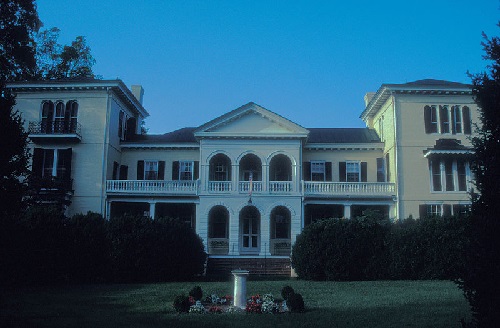
March 12, 2015;Washington Post
Anyone who is a regular reader of NPQ knows that we have covered stakeholder revolts against nonprofit (and for-profit) boards quite extensively. From Susan G. Komen, to the San Diego Opera, to the Market Basket grocery chain, the new communications environment allows diverse groups of stakeholders to organize for common cause much more quickly than might have been possible in the past. In this case, a reaction that started with alumnae now includes donors, faculty and legislators. When will boards understand that it is easier to engage stakeholders than to exclude them—in this century, at least?
Virginia State Senator Chap Petersen (D-Fairfax) has a grandmother who is an alumna of Sweet Briar College. As readers may remember, the board of the small women’s college just voted to close, which has sparked a firestorm of protest from alumni. Some of those alumnae appealed to Petersen, who put some questions he had about the situation to Virginia Attorney General Mark Herring in a public letter.
Quoting from the Washington Post:
“‘As I understand, the College has a ninety-four-million-dollar endowment and has been soliciting and collecting donations right up until a few weeks before the announced closing. I also understand that it owns a 3,200-acre campus with fixed assets, which is specially designated for the maintenance of a women’s college,’ as stipulated by the original landowner who founded the college. So, he asked:
- ‘What are the rights of the donors who made gifts to the institution in the past year, i.e. after the plans for closing had apparently been decided but not disclosed? Do they have a right to seek a refund if the school continues with its plan for closing?
- ‘What is the obligation of the school to its existing students, particularly those students who are within a year of achieving their degree?
- ‘What will happen to the property if it is no longer operating as a women’s college? Does it not revert to the donating party?
- ‘What is the role of the Board of Visitors in this process? Does the Board have a fiduciary duty to protect the interests of donors and students, as well as the mission of the College?’”
One take on who has a call on donor money now parked at the $94 million Sweet Briar endowment can be found here.
Some faculty members have joined the alumnae in their fight to reverse the board’s decision. They contend that some members of the faculty have had their severance pay threatened if they chose to join the protest, though Sweet Briar administration says this may be a misunderstanding.
Sign up for our free newsletters
Subscribe to NPQ's newsletters to have our top stories delivered directly to your inbox.
By signing up, you agree to our privacy policy and terms of use, and to receive messages from NPQ and our partners.
“I want to go on record in saying there are so many faculty who really feel trapped, conflicted and fearful to speak for themselves,” said Claudia Chang, a college faculty member for more than thirty years. “On behalf of those faculty, I am ready to stand up to the administration, join our alumnae and fight this closure tooth and nail.”
“The college’s decision to close Sweet Briar without giving alumnae, faculty and students the opportunity to help develop a viable plan is unconscionable,” said John Ashbrook, another professor, in a statement:
“We knew the school was in trouble, but not to this degree. If the administration and board had been more forthcoming and told the alumnae and faculty we were in this much trouble, I am sure we would have seen the same level of engagement as the Save Sweet Briar movement, but with more time to turn us around.
“Many of us suspected the previous two presidents and the board were not innovative thinkers and made poor financial decisions. And some of us, not me personally, but some feel that if we speak out there will be repercussions. However, if the faculty and alums give up, there will be repercussions for traditional liberal arts schools across the country.
“It isn’t just Sweet Briar’s fight. It’s a fight for liberal arts. Churchill said it best: ‘Never surrender!’ The students of Sweet Briar deserve better, as do the faculty, staff and alumnae.”
Assistant professor Marcia Thom-Kaley said that “financial problems of this magnitude don’t happen overnight,” and she wishes that they had been engaged sooner. “The faculty was told that as of October 2014, the auditors had signed off on their audit of the financial state of the college without raising any alarm bells,” Thom-Kaley said. “The administration should have involved faculty, staff, students and alumnae three years ago in the fight to save our beloved home. If someone is bleeding, you do not stand there and watch them die. You call an ambulance, you enlist everyone you see to help you stop the bleeding.”—Ruth McCambridge









